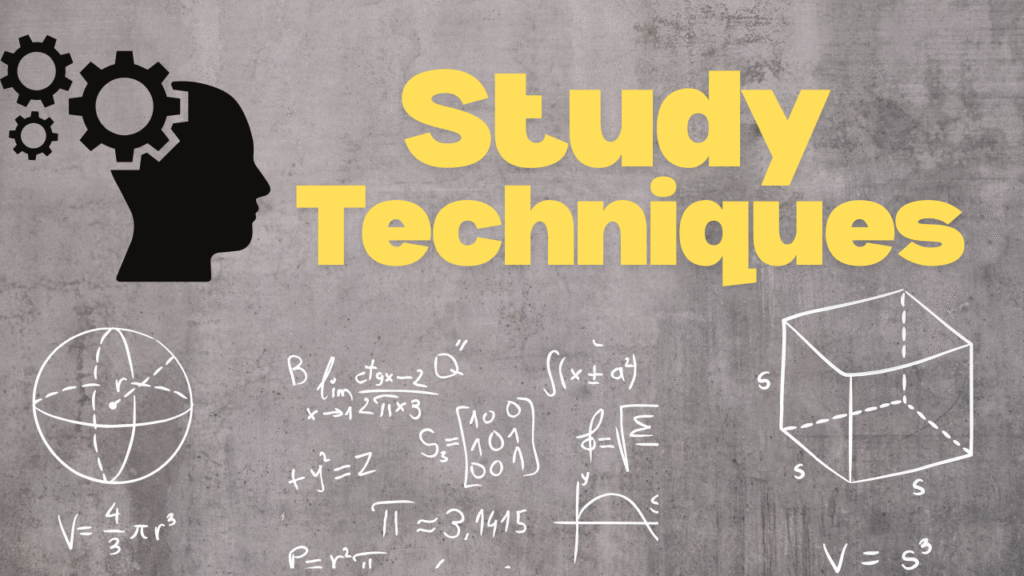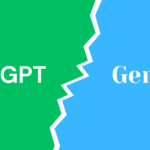Homework, Essays, And Test Prep… Oh My! Imagine if I told you that there is an AI tool available for free that can help you study smarter, quicker and better? It has made a great change in how millions of students perform worldwide and you can also do this same to achieve remarkable performance that is experienced by many.
Let’s discuss some common practices how one can use ChatGPT as their own study buddy for concepts or in study plans. After reading this post, you will have a repertoire of time-tested methods that can set you on fire and drastically change the way you study.
How ChatGPT Really Fits for Student Life
ChatGPT is not just another tech tool but a patient 24/7 tutor. Instead of traditional study sessions, the AI assistant can adjust based on how you learn, explain topics in layman terms and gives feedback to your comprehension instantly.
ChatGPT is unique for students due to following reasons:
- Available at all times: You don’t have to wait for office hours or make an appointment
- Individual assistance: Explains the content according to your previous knowledge and learning type
- Multiple subjects: Available for math, science, history, languages and much more
- Conversations: Smaller learning segments that can be broken down into questions and responses
- No subscription costs for the basic version
Begin with: Getting ChatGPT Ready for Studying
Now, before we jump into some of the more advanced study methods strategies, be prepared for a successful attempt. Sign up for a free account and simply setting up your account takes just a few minutes.
Basic Setup Steps
- Go to the OpenAI website and set up a free account
- Activate full features by confirming your email
- Begin with basic questions to feel the interface
- Discover writing prompts for beginners
Creating Better Study Help Prompts
How to get good help at ChatGPT. Here are some examples:
Not: “Help me on math” But: “I have no idea about quadratic equations. Please prove the solution of x² + 5x + 6 = 0.”
Not: “Write my essay” But: “Help create an outline for a 5 paragraph article around the reasons which led to World War 1”
Smart Study Strategies with ChatGPT
Make Effective Study Plans of Your Own
ChatGPT can be of great use to help you manage your study time. You can make much more organized plans, which focus on your needs specifically instead of cramming randomly.
Example Prompt: “In 2 weeks I have a biology test on cell structure, photosynthesis and cellular respiration. I can study 1 hour per day. Make a really extensive timetable for me.”
It will divide topics for ChatGPT to go through as well as set daily goals and even suggest when to review past sessions. This approach helps you:
- Avoid last-minute panic studying
- Cover everything that is very crucial
- Balance different subjects effectively
- Track your progress over time
Breaking Down High-Level Concepts
Surely, there are those subjects that seem impossible to stay on top of for every student. ChatGPT does an excellent job in parsing a complex concept to sub-parts of it.
How to use this feature
- Request easy explanations: “ELI5 Photosynthesis”
- Request analogies: “If you were to compare the water cycle to something I deal with every day”
- Break down the long division steps with an example in detail
- Engage in dialogue: Keep asking WHY and HOW until you get it
Master Different Learning Styles
We all do not learn the same way. ChatGPT knows the best way to teach you, and adjusts accordingly!
| Learning Style | How ChatGPT Can Help | Example |
| Visual | Create diagrams and charts descriptions | “Describe how to draw a diagram showing the water cycle” |
| Auditory | Provide discussion points and verbal explanations | “Give me talking points to explain gravity to a friend” |
| Kinesthetic | Suggest hands-on activities and experiments | “What simple experiments can help me understand chemical reactions?” |
| Read/Write | Generate summaries & written content | “Explain the major causes of the Civil War in bullet points” |
Subject-Specific Study Techniques

Mathematics Made Easier
Math can be scary but with hundreds of practice problems and step by step solution through ChatGPT.
Best practices for math help:
- Request step-by-step solutions: Many students make the mistake of just asking for the answer, and they then look at how to replicate it in their exams.
- Ask for more questions: “3 more problems to practice”
- Self-assessment: “Is my solving of this equation correct? [show your work]”
- Demonstrate multiple solutions: “Show me 2 ways to do this”
Example conversation:
You: “Solve 2x + 5 = 15”
ChatGPT: Showing each step: subtract 5 from both sides, then divide by 2
You: “Give me 3 of those practice problems”
ChatGPT: Generates new equations with different difficulties.
Science Concepts Simplified
The Science subjects mostly have the abstract portion of their syllabus which is difficult to imagine. With ChatGPT, these can be easily made concrete and more memorable.
Effective science study strategies:
- Current application: “In what other way do I observe a process analogous to DNA replication in my personal life?”
- Ask for concrete examples: “Where does Newton’s third law come into play in sports?”
- Examples: “If I drop a ball from various heights, what is occurring and why?”
- Create flash cards: “Write 10 questions about the elements on the periodic table”
Language Arts and Writing Support
With ChatGPT, it is less daunting to write essays and analyze literature while having an AI writing coach.
Writing help techniques:
- List your thoughts: “Why we must be forced to recycle, and help expand on the idea.”
- Compare and contrast outlines: “Outline a compare contrast essay on two characters”
- Grammar check: “Is this grammatically correct? [paste your sentence]”
- Enhance vocabulary: “Tell me what I should place in place of ‘good’ in my essay”
N.B. — Write your own essays, always! Use ChatGPT as your guidance rather than having it do all the work for yourself.
Social Studies and History Research
History and social studies require students know how events, people, and ideas link. Find the macro in your work with ChatGPT.
History study methods:
- Design a timeline: “Major World War 2 events”
- How to explain it: “What were the main causes and consequences of the Industrial Revolution?”
- Period compare: “Life in the 1800s vs 1900s”
- Practice essays: “Outline my essay — Printing Press”
Advanced Study Techniques
Create Interactive Quiz Sessions
Make ChatGPT your Quiz Master. This is great for test prep and memorization.
How to set up quiz sessions:
- Select your topic: “Quiz me on American presidents”
- Choose difficulty: “Ask me 10 intermediate questions in Chemistry”
- Ask for feedback: “Tell me what I answered incorrectly and present it properly to me”
- Mix it up: “Show me multiple choice, true or false, and essay questions on biology”
Use the Feynman Technique
Feynman Technique — It is the idea that you should be able to explain concepts in such a way that it will make sense to an 8th grader if you truly know the content. This is where ChatGPT comes in.
Steps to apply this technique:
- If you have already learned a concept from your textbook or class then it is easy to go through examples
- Tell ChatGPT in your words
- Ask ChatGPT to find where you lost the understanding
- Clear up where you missed anything
- Keep re-explaining until you can clearly explain it
Example: “I will tell you about photosynthesis. What am I missing or doing wrong: [your explanation]”
Create Study Groups and Discussion Points
ChatGPT allows you to create group discussions which benefit creating a learning environment.
Group study simulation:
- Debate Topic: “Arguments for each side: Should homework be forbidden?”
- Discussion prompts: “Name 5 key discussion questions about Romeo and Juliet”
- Peer teaching: “I have to teach the water cycle to my peers. Help me prepare”
Memory and Retention Strategies
Create Memorable Mnemonics
How to build memorable memory devices with ChatGPT. Mnemonics — perfect for lists, formulas, and routines.
Memory aids that can be produced using ChatGPT:
- Acronyms: “Acronym from the first letter of each planet to help memorization”
- Rhymes: “Rhyme to remember the quadratic formula”
- Stories: “Turn the bill of rights into a tale you will remember”
- Visual connections: “Help me form word pictures of Spanish language words”
Spaced Repetition Planning
This cycle is scientifically proven to enhance long-term memory. Use ChatGPT to schedule your study sessions.
Request example: “A structured, spaced-repetition schedule to learn 50 Spanish vocab words over the next month”
At the outset, the AI would recommend frequent reviewing of new words which becomes slowly spaced out as you get to grips with them.
Active Recall Exercises
Active recall, unlike simply re-reading notes, involves you attempting to pull information out of your brain. Create different recall exercises using ChatGPT.
Active recall techniques:
- Fill-in-the-blank: “Provide fill in the blank sentences using main biology terms”
- Generate Questions: “Take my history notes and turn them into practice questions”
- Build concept maps: “Build me a concept map of these ideas”

Test Preparation Strategies
Practice Different Question Types
Sections of the test generally come in a few different question styles. ChatGPT is a place to practice both ways efficiently.
Question types to practice:
- Multiple choice: “Generate 10 questions in the form of multiple choice about the Revolutionary War”
- Short answer: “Give me short answer questions about photosynthesis”
- Essay writing: “What essay questions might be on my exam?”
- Word problems: “Create word problems using the Pythagorean Theorem”
Build Test-Taking Confidence
Test anxiety affects many students. Practice and preparation: With ChatGPT you can develop your confidence.
Confidence-building strategies:
- Mock tests: “I want a 20 question mock test in algebra”
- Time management: “Please help me develop a strategy for going through a 2-hour exam”
- Stress management: “How can I keep from panicking during tests?”
- Last-minute review: “How do I review my notes the night before a test?”
Create Study Summaries
A detailed summary of everything you know before major tests forces your brain to synthesize this information. ChatGPT can help create structured notes for revision.
Summary creation process:
- Gather materials (notes, textbooks, assignments)
- Tell ChatGPT to organize main topics and subtopics
- Ask for key points in each segment
- Create visual aids: Charts and diagrams
- Create test questions off of your notes
Homework Help Which Helps You Actually Learn
Get Unstuck Without Getting Answers
You don’t want ChatGPT to do your assignment, you want it to help you learn how to solve it.
Productive homework help:
- Seek hints: “I cannot solve this math problem. Would you give me a clue of where to begin?”
- Examples: “Show a similar question with the answer, and then I should demonstrate my solution”
- Check your thinking: “Does what I’m doing for this problem in science add up?”
- Request clearer instructions: “What do you want me to achieve with this?”
Research and Citation Support
For research projects, ChatGPT could aid you in structuring information and citation practices.
Research assistance:
- Brainstorm topics: “Help me narrow down my research topic on climate change”
- Organize findings: “Help me categorize my research into main themes”
- Citation help: “Show me how to cite a website in MLA format”
- Outline creation: “Help me organize my research into a logical paper structure”
Important reminder: Always make sure to verify any information from ChatGPT with reliable independent sources and never plagiarize the content generated by AI.
Time Management and Organization
Create Effective Study Schedules
Balancing multiple subjects and activities calls for a well-thought-out schedule. ChatGPT can assist you in creating a practical study plan that can be completed daily.
How to create a schedule:
- Specify your limitations: “I have soccer practice on Mon/Wed/Fri and work every weekend”
- Include all of your subjects: “Help me allocate my time between math, science, English, and history”
- Goals should be realistic: “I can study for 2 hours on weekdays and up to 4 hours on weekends”
- Include time for breaks: “Include breaks and review in between”
Priority Management
Not every assignment has equal priority. ChatGPT can help you prioritize homework based on the deadline, difficulty, and percentage on the final grade.
How to prioritize:
“I have a math test tomorrow and an English essay due in a week. How do I manage my time?”
List your tasks and ask ChatGPT to organize them by priority. “Help me make a schedule for my daily tasks.”
Productivity Techniques
ChatGPT can also teach you effective productivity methods: the Pomodoro technique, time blocking, and goal setting.
Some methods include:
- Pomodoro procedure: Focused 25-minute work sessions followed by 5-minute rest breaks
- Time blocking: Set aside an entire day dedicated to different activities: assignments, music, sports, and cooking
- Goal setting: To efficiently achieve assignments
Common Student Mistakes to Avoid
Red flags:
- Copying answers without understanding them
- Getting a whole essay or assignment written by ChatGPT
- Not bothering to go through explanations
- Not going through the foundational learning steps to give you some immediate basic answers
Better approaches:
- Use ChatGPT for clearing out confusing concepts
- Ask for explanations of steps you do not understand
- Ask for practice problems, instead of answers to homework
- Engage in dialogic discussions to develop understanding
Verify Information and Check Sources
Though ChatGPT is robust in accuracy, it still can occasionally generate incorrect information. Verify all crucial information, especially for:
- Historical dates and facts
- Scientific formulas and principles
- Mathematical calculations
- Current events and recent developments
Maintain Academic Integrity
Responsible use of AI tools consists in adherence to the academic integrity policies stipulated by your institution.
Guidelines for ethical use:
- Make sure to check with your school for the AI policy before doing assignments using ChatGPT
- Be honest about using AI assistance to teachers when necessary
- Focus on learning and understanding instead of doing work
- Give credit where appropriate
Building Long-Term Success Habits
Develop Critical Thinking Skills
Although ChatGPT can answer questions, you will still need to exercise your critical academic thinking for preparing responses that expand information for high-quality learning.
Critical thinking development:
- Question everything: Always ask why, do not take anything for granted as truth
- Identify patterns: Relate new things to what you already know
- Problem-solve: Perhaps you are sitting with a challenge, there is a way to work through it step by step. Practice it!
- Fact check: Differentiate between reliable and unreliable sources
Create a Sustainable Study System
Whichever system you can do day in and day out for the next 6 months is what will work best for your study plan.
Elements of a sustainable system:
- Consistent routine: Learn daily and not all at once
- Various methods: Combine different learning styles to stay engaged
- Monitor your progress and make tweaks as necessary
- Make space for yourself: Scheduled pauses, physical activity and socializing
Plan for Future Academic Challenges
The subjects only get harder as you continue in your academics. Developing good basics now sets you up to overcome the odds by time.
Future preparation strategies:
- Master the basics before moving to advanced topics
- Establish study habits that will eventually help in high school and college
- Gain confidence: Learn to need help less frequently and trust in yourself
- Nurture curiosity: Develop intrinsic interest in learning for purposes other than earning high marks
Summary: How to Study Smarter
For the modern student, ChatGPT is a powerful learning tool, but it is also a double-edged sword. These are tools that will improve your ability to continue studying, absorb the topics in depth and yield better academic performance.
Understand that it is not a substitute for traditional learning but supplements learning. Treat ChatGPT as a buddy, coach and assistant but remember that you are the one who is learning things. In other words, engage actively and work on it instead of allowing the information to fly by you.
Those who excel with AI tools as students are doing it to help them learn better, not circumventing any learning at all. This guide will help train you to possess the technical skills such that you can use AI effectively as well as the necessary critical thinking abilities for various aspects of your academic career and into life.
Choose the one or two strategies that resonate with you most and do them as consistently as possible, then slowly add other strategies to your toolkit when you are ready. Given the right approach and patience, ChatGPT could be a very useful tool in your academic toolbox to help you not just study smarter but also become a more confident, capable and curious learner.
Learn to use your education as an investment in yourself. And if you do, then not only will you probably improve your grades by learning how to responsibly and effectively implement tools like ChatGPT, but you will set yourself up to show the world that as we head towards a more AI-integrated future — so are you.
FAQ
1. What makes ChatGPT useful for students?
ChatGPT works like a 24/7 personal tutor that explains topics in simple terms. It adapts to your learning style and gives instant feedback. Plus, it supports multiple subjects without extra cost for the basic version.
2. How do I get started with ChatGPT for studying?
Sign up for a free account on OpenAI’s website and confirm your email. Explore the interface by asking simple questions. Then move on to more detailed study prompts.
3. How can I write better prompts for ChatGPT?
Be specific about what you need help with instead of asking vague questions. For example, request a step-by-step solution or an essay outline. This makes ChatGPT’s answers more useful for learning.
4. Can ChatGPT help me make study plans?
Yes, you can ask it to design personalized schedules based on your subjects and time. It divides topics into manageable parts and sets goals. This helps you avoid cramming and stay organized.
5. How does ChatGPT explain difficult concepts?
It can simplify ideas into plain language and use analogies. ChatGPT can also break down problems step by step. You can keep asking follow-up questions until you understand.











